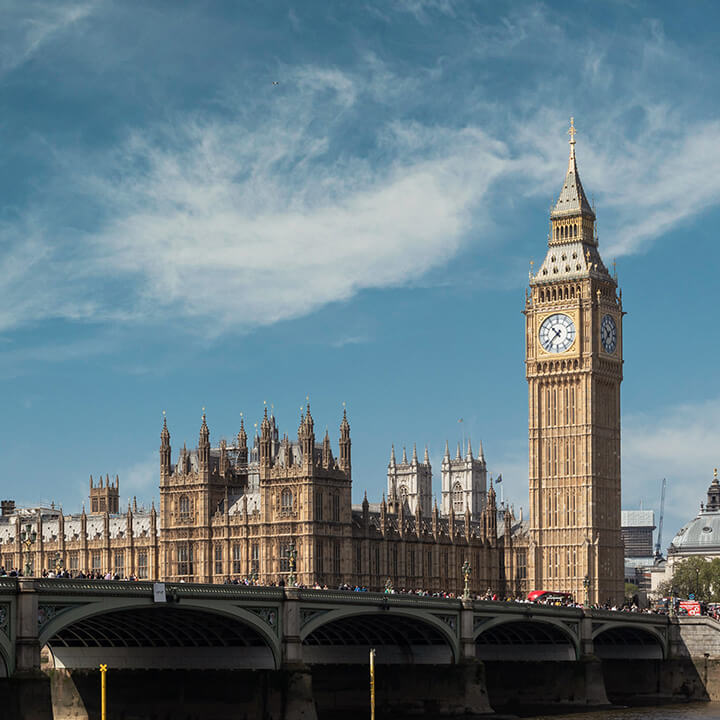Budget 2024: What to expect
29th October 2024
“Tomorrow’s budget is one of the most widely anticipated in my tax career. Any change of government brings with it the expectation of material changes to the tax system but this year has the potential to be particularly interesting as the government seeks to keep its promise of not raising taxes for “working people” whilst simultaneously laying the foundations to plug the financial gap which they have gone to great lengths to highlight.”

The news today is filled with Budget 2024 predictions and deal activity has gone through the roof in recent weeks as taxpayers seek to mitigate the risk of tax rises, but what do we really know about what to expect tomorrow? In this article, Nicola Parkinson, head of our Tax team, considers some of the predictions which are circulating.

Navigating financial challenges within Budget 2024
The government has gone to great lengths to point out the financial crisis that they have inherited and, whether you believe that to be true or not, we know that this is clearly designed to lay the groundwork for what Keir Starmer has already told us will be a “painful” budget. The inevitable conclusion is that we should expect a combination of tax rises and spending cuts. However, when the primary sources of tax income for the government are income tax, national insurance and VAT and the government has made a very public commitment not to raise these taxes for working people, what else is left?
Capital gains tax
The usual suspect is capital gains tax, seen as a tax on wealth, a raise in capital gains tax would arguably be in line with the government’s electoral promises. However, the difficult bit to predict is what that increase will look like. Some would argue that capital gains tax should be aligned with income tax but others would argue that this would be counterproductive and act as a disincentive to sell thereby reducing the tax take. When asked about a potential rise to as much as 39%, Keir Starmer commented that “Quite a lot of speculation is getting pretty wide of the mark” suggesting such a dramatic rise is not in the offing. What is more likely is a more modest increase in the headline rate combined with a tightening of reliefs.
Employer’s national insurance contributions
An increase in employer’s national insurance contributions now seems inevitable after the prime minister refused to rule out an increase in the rate paid by employers earlier this month. Initial predictions suggested that the Chancellor would add employer’s national insurance to employer pension contributions but Reeves has rejected this suggestion indicating that a small rise in the principal rate of employer’s national insurance seems more probable.
Such a change will no doubt raise assertions that this is a tax on working people by the back door as employers point out that this will impact their ability to offer higher wages and generate growth. Consider also the position of the small business owner with a couple of people on the payroll making a modest income – any hike in the employer rate of contributions will inevitably come off the business owner’s income. This definitely feels like a tax on working people. In its extreme, this could render these small business uneconomical and force closures. Perhaps a threshold, like that applicable to the Apprenticeship Levy, would help to mitigate the impact for the smallest employers.
Pensions
A number of changes surrounding pensions have been mooted and dismissed. The most notable being the suggestion that income tax relief for pension contributions would be capped at the basic rate but this was seemingly dismissed after outcry from the public sector. Other suggestions have included further restrictions on the 25% tax free lump sum (leading to an increase in withdrawals ahead of the Budget 2024) and levying inheritance tax on pension saving. What is clear is that commentators expect some change but the Chancellor needs to be careful that whatever she does doesn’t disincentivise pension savings.
Income tax
Even though the government has committed not to raise the headlines rates of income tax, that does not mean that there will be no change. The current income tax thresholds at which the different tax rates apply were frozen in 2022 by the Conservative government but that freeze was only due to last until 2028. One option open to the Chancellor is to extend that freeze. It would not be a raise in rates but it would inevitably drag more working people in to the income tax net as wages increase. To the extent wages rise but don’t keep up with inflation, the freeze will result in a real cost to working people.
Budget 2024: How we can support you
All of the above is of course just further speculation and so we await tomorrow’s announcement and its fall out with no small amount of anticipation. The Tax team here at Walker Morris will be glued to their screens tomorrow lunchtime. If you have any questions or concerns about what comes out of tomorrow’s budget, feel free to reach out to us.











